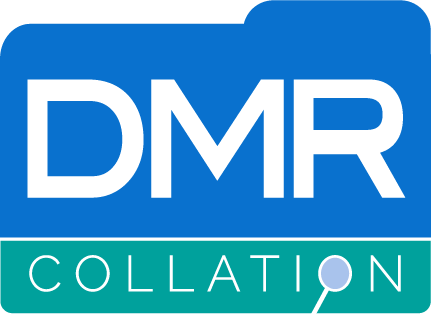
The 2022 consultation on Lower Damages Fixed Recoverable Costs (LDFRC) did not cover the recoverability of disbursements in detail. The supplementary consultation on LDFRC is open until 27 October 2023 which deals with the recoverability of disbursements including expert reports and ATE premiums.
Recoverability of pagination fees as a separate disbursement are not currently proposed, whilst provision of a paginated bundle of records is a requirement under the scheme.
We have submitted a response in disagreement with the proposed scheme asking that pagination fees are treated as a separate disbursement, akin to expert reports.
We set out our response below for your information:
__
Introduction:
DMR Collation Ltd are a medicolegal agency providing collation and chronology drafting services to UK based personal injury and clinical negligence law firms.
We have been operating for over 13 years (since 2010). Our Owner and Managing Director is a Civil Litigation Lawyer with extensive experience in Claimant Personal Injury and Defendant Clinical Negligence claims.
DMR Collation Ltd have been an accredited member of PAGE (the Pagination Accredited Group of Experts) since 2021 whose aim is to increase industry standards in the collation (aka pagination) of medical records. PAGE shares the views of DMR Collation in our response below.
Law firms outsource the collation of medical records to firms such as DMR Collation as they do not have the resources in-house to cost effectively complete this work themselves. This is because collation work can be undertaken by pagination companies at a much lower hourly rate than completing it in-house, because collation work is time intensive and therefore it is difficult to free up a paralegal’s time to complete this, or because the law firm does not have appropriately experienced member of staff who can engage in this type of work. There is a well-established practice that pagination work normally is billed as a separate disbursement to legal costs.
It is crucial that the work completed by pagination companies, in preparing the case for medicolegal reporting and trial, is taken into consideration when the fixed costs scheme is finalised, as the work we do saves time for both parties down the line and results in a good ordered set of records for both medical experts, parties and the courts to use.
It is a requirement that a paginated bundle of records is provided under the scheme. As such, you need to ensure that appropriate funds are allocated to facilitate this bundle of records being prepared to a consistently good standard.
Pagination of medical records doesn’t just simply involve applying page numbers to records. It is a time-consuming process which involves sorting records into document type, chronological order, removal of duplicate records, preparing detailed indexes, scanning records to make them digital and formatting them to make them searchable.
We propose that pagination costs should be a separate disbursement under the scheme akin to the proposed expert reports and ATE insurance premiums.
If you do not allow a separate disbursement for pagination of records outside of the fixed recoverable costs scheme, medical records won’t be collated. This is because law firms simply don’t have the resources to do this within the proposed fixed recoverable costs.
Why paginate records in Clinical Negligence Claims valued at less than £25,000?
Even in lower value claims, the issues at hand may be just as complex. As such, a collated and clearly indexed set of medical records is essential to:
- Identify key missing records before medical experts are instructed.
- Remove duplicate/blank records to reduce the size of records requiring consideration and subsequently reduce consideration time further down the line.
- Display records in an easy to navigate and indexed format.
- Provide all records in a collated electronic bundle to allow for easy sharing, searchability and page numbering.
- To comply with Data Protection Laws to ensure the records don’t contain any third-party privileged information such as different patient records – yes unfortunately this happens all the time!
One purpose of the fixed recoverable costs scheme is to streamline the running of these claims. This won’t be possible unless professional pagination of records is facilitated.
Pagination Costs
As an average rule of thumb, it should take an experienced paginator 2.5 to 3 hours to collate, scan, paginate and index one lever arch file of records (400 pages). This will vary depending on record type, condition, and number of sources of the records disclosed.
The time it takes to collate records depends entirely on the set of records disclosed, but we and other pagination companies do offer fixed costs schemes for pagination based on page count. We would be happy to provide you with a copy of our fixed costs scheme upon request.
If you require any additional information, please do not hesitate to contact us.
How you Can Help?
Please visit:
and submit a supporting response to the consultation by 27 October 2023.



